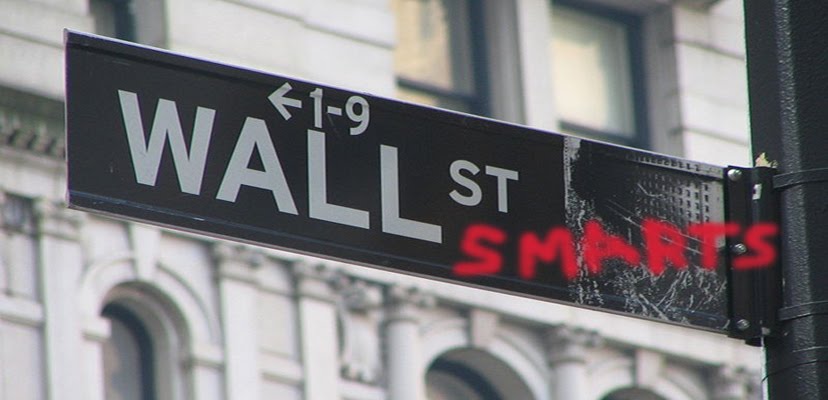WALL STREET SMARTS, THE BLOG, IS NOW WALL STREET SMARTS, THE BOOK. FULLY EDITED AND REVISED WITH NEW MATERIAL ON AMAZON
Dr. Taleb described his trading philosophy as one in which he limited his losses and left open the possibility of large gains if and when an unusual event should take place. He complimented traders who bought options, which meant a loss was limited to the option fee paid, but which provided the trader with the opportunity to reap an out sized profit if something unexpected were to occur. Taleb's investment strategy was to always look for a Black Swan even if he was not sure in what form it might appear.
He likened the unknown risks inherent in the strategies of many investors/traders to the dangers of inductive reasoning noted by the philosopher Bertrand Russell and symbolized by the life of a chicken. Inductive reasoning begins with observations which lead to inferences, then to perceived patterns which lead, ultimately, to theories to address an issue or problem. Dr. Taleb retells Russell's story from the perspective of a turkey:
Consider a turkey is fed every day. Every feeding will firm-up the bird's belief that it is the general rule of life to be fed every day by friendly members of the human race "looking out for its best interests," as a politician would say. On the afternoon of the Wednesday before Thanksgiving, something unexpected will happen to the turkey. It will incur a revision of belief.
(Author's emphasis in bold)
I have heard two stories which illustrate the same point.
In the first anecdote, an individual returned from the west coast to his small Midwestern hometown after both his parents had passed away. He had decided to live in his childhood home. He deposited his savings in the local bank in which he had opened his first Christmas Club savings account as a child. The very next day, the bank failed and was taken over by the Federal Deposit Insurance Corporation (FDIC). This was his Black Swan. The FDIC guaranties that, in the event of a bank failure, the depositors will be refunded their money (with some limitations). Although he ultimately received his deposit back, he was heard to complain about the bank officer who had gladly taken his deposit less than twenty-four hours before the bank closed for good.
In the second one, a widow owned a small amount of stock in her local bank. The shares had been purchased by her husband years before. The local bank was purchased by a larger bank in the area, which in turn was purchased by a regional bank, which was itself purchased. With stock splits, several subsequent bank mergers and a steadily rising price for her shares in the larger, publicly traded institutions along the way, she had accumulated a substantial number of shares worth a significant amount of money. At one point, she sold enough stock to buy a new car. The downside was that those holdings represented a fairly large percentage of her portfolio. Aside from the car purchase, she refused to sell any more shares since the capital gains tax would have been substantial. Things went well until the day the financial institution failed due to "accounting irregularities." The market price of her shares dropped to less than a dollar per share within days of the public announcement that management had been "cooking the books." Another Black Swan.
Although there are typically over a hundred bank failures throughout the US every year, there was no reason why the depositor should have anticipated the failure of a bank that had served his hometown for more than sixty years. Given the years of increasing share price and the conflicting market proverbs to (i) let profits ride and (ii) diversify a stock portfolio, the widow saw no reason to sell shares and increase her taxes. In the final analysis, she let the tax tail wag the investment dog.
Both stories, if true, are apocryphal examples of Black Swans.
Excerpt from The Black Swan The Impact of the Highly Improbable, Nassim Nicholas Taleb, copyright 2007, published by Random House, page 40.
Comments are always welcome.

Hi are using Wordpress for your blog platform?
ReplyDeleteI'm new to the blog world but I'm trying to get started and set up my own.
Do you require any coding knowledge to make your own blog?
Any help would be greatly appreciated!
my website binary stock options
It's a shame you don't have a donate button! I'd most certainly donate to this excellent blog! I suppose for now i'll settle for bookmarking and adding your RSS feed to my Google
ReplyDeleteaccount. I look forward to brand new updates and will share this website with my Facebook group.
Talk soon!
my website; options binary
Thank you for the comments. This blog runs on Blogger.
ReplyDelete